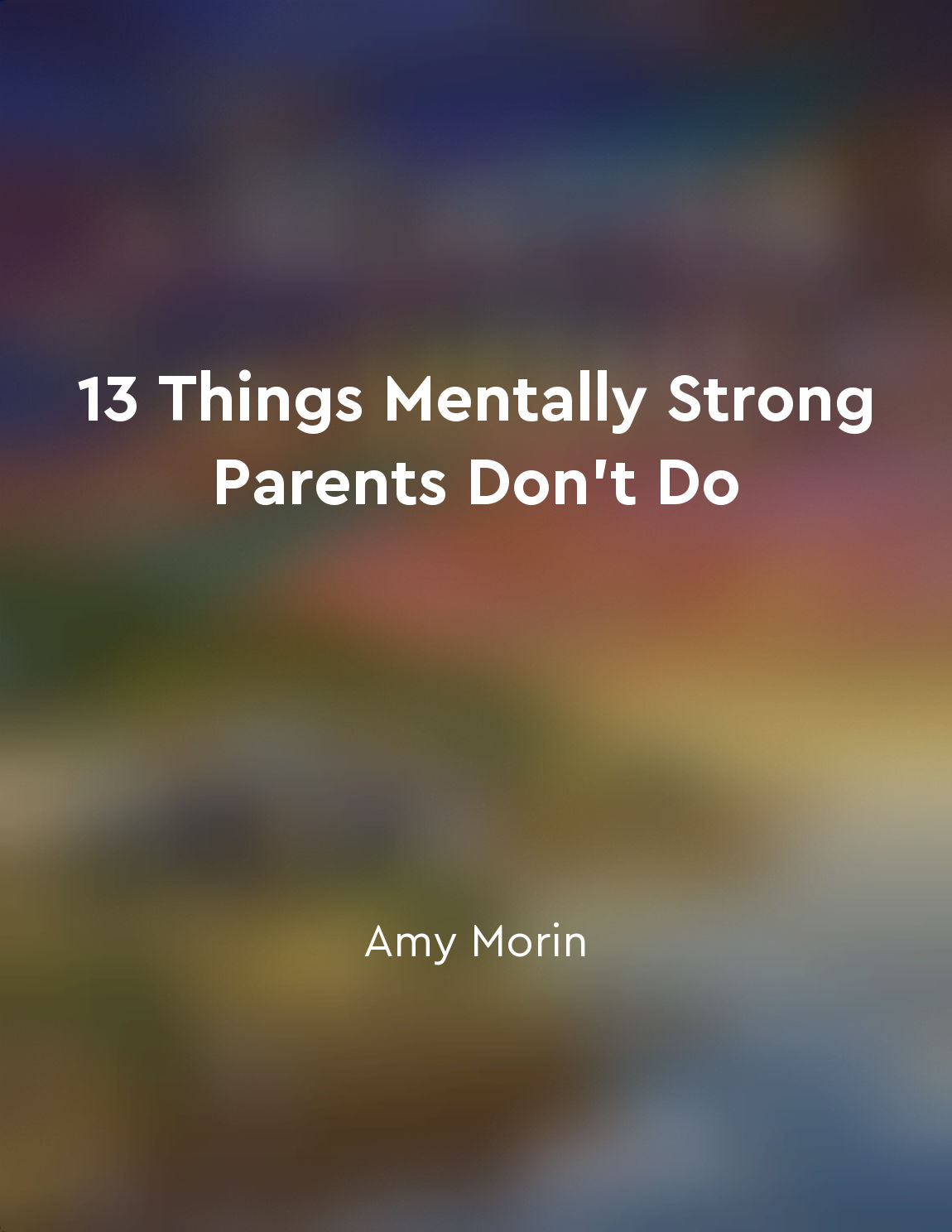The importance of regulating your own emotions in parenting from "summary" of No-Drama Discipline by Daniel J. Siegel,Tina Payne Bryson
As parents, we often find ourselves in challenging situations with our children that can trigger strong emotional reactions. When we are faced with a child who is throwing a tantrum or refusing to cooperate, it can be easy to lose control and react in ways that are not helpful or productive. However, it is essential to remember that our own emotional regulation plays a crucial role in how we respond to our children. When we are able to regulate our emotions and stay calm in the face of our children's challenging behaviors, we are better equipped to handle the situation effectively. By staying calm, we are more likely to respond thoughtfully and empathetically, rather than reacting impulsively out of anger or frustration. This not only models healthy emotional regulation for our children but also creates a safe and secure environment for them to express their feelings. Furthermore, regulating our own emotions allows us to approach discipline from a place of understanding and connection, rather than punishment and control. When we are able to manage our emotions, we can more easily see the underlying causes of our children's behaviors and respond in ways that address their needs and promote positive behavior change. This helps to strengthen the parent-child relationship and build trust and cooperation between us and our children. In addition, when we are able to regulate our emotions, we are better able to set limits and boundaries with our children in a firm but loving way. By staying calm and composed, we can enforce rules and consequences consistently and effectively, without resorting to yelling, shaming, or other harsh disciplinary tactics. This helps our children learn to respect and follow our guidance, while also feeling loved and supported.- The importance of regulating our own emotions in parenting cannot be overstated. By taking care of our own emotional well-being and practicing self-regulation, we not only improve our relationships with our children but also create a positive and nurturing environment for their growth and development. So, the next time you find yourself in a challenging parenting situation, remember to take a deep breath, center yourself, and respond with empathy and compassion. Your children will thank you for it.
Similar Posts
Inteligencia emocional es habilidad que se puede desarrollar
The concept of emotional intelligence as a skill that can be developed is a fundamental principle in understanding and improvin...
Support your child's developing sense of self
When we support our child's developing sense of self, we are nurturing their growing understanding of who they are and how they...
Learning from failures strengthens resolve
At first glance, failure seems like a discouraging dead end. It's a stop sign, a red light, a roadblock. Who wants to fail? Nob...

Understanding the power dynamics in every situation
To truly master the art of power, one must be keenly aware of the power dynamics at play in every situation. This entails under...
Building strong communication skills is essential for parentchild relationships
Effective communication is the cornerstone of a healthy parent-child relationship. When parents and children are able to commun...
Encourage a sense of belonging and connection
Encouraging a sense of belonging and connection is a fundamental aspect of Danish parenting philosophy. It is about creating an...

Practice Teaching Your Child Important Life Skills
Teaching your child important life skills is crucial. It's not enough to simply tell them what to do or expect them to figure i...

Parents must find joy and fulfillment in the everyday moments of raising children
Raising children is a complex and demanding task, filled with moments of frustration, exhaustion, and doubt. Parents often find...
Acknowledge your child's feelings, but hold them accountable for their actions
When your child comes to you feeling upset, it's important to validate their emotions. Let them know that you understand how th...
Encouraging physical touch builds connection
Physical touch is a powerful way to communicate love to children. Hugs, kisses, pats on the back, and high fives are all ways t...

